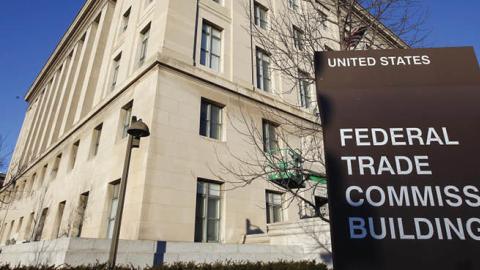Congress is considering whether to amend the Federal Trade Commission’s authority under Section 13(b) of the Federal Trade Commission Act. The answer is clearly “No.” Here’s why.
Imagine you’re in your car, driving down the road. Suddenly, you’re pulled over by a police officer, who issues you a ticket. You ask the officer what law you broke. He can’t name one; he simply says you were driving too dangerously. And, as it turns out, the local law laying out the authority of police officers does not grant them the ability to issue tickets. Yet when you go to challenge the ticket in traffic court, you’re ordered to pay the fine listed on the ticket without any explanation.
Of course, this situation does not happen in the real world. Police officers have lawful authority to issue fines for all manner of moving violations. But such a tale with dubious authority is all too familiar to businesses whose industries are routinely monitored by the Federal Trade Commission.
While the FTC is perhaps best known for its antitrust work, the second of its twin missions is consumer protection. The FTC’s Consumer Protection Bureau chiefly concerns itself with the prevention of “unfair or deceptive acts or practices,” in accordance with Section 5 of the FTC Act.
What exactly is an unfair or deceptive act or practice? The answer has remained ambiguous for decades. Nevertheless, wielding this authority, the FTC’s Consumer Protection Bureau has targeted companies across all manner of industries. While health supplement companies and the like are typical targets, shoemakers and even social media influencers have found themselves in the Commission’s sights in recent years.
When prosecuting a company for violating the law, the government should be able to explain to a judge that the conduct in question was in advance clearly known to be unlawful and was unambiguously contrary to statutory language. This is a foundational element of the rule of law. If instead, the government accuses a business of unknown violations based on statutory interpretations made up after the allegedly unlawful act, the rule of law disintegrates into the rule of arbitrariness.
Defeating the rule of arbitrariness requires defendants to have their day in court so that judges can hear their predicament. Yet taking on the government in court is costly and, for many small companies, downright intimidating. This is particularly the case when a company had no basis to understand that its conduct would be deemed illegal by the FTC until after the fact. Faced with potentially Kafkaesque litigation or settling with the FTC, most parties settle, even when the parties believe they did nothing remotely unlawful.
The result is scant consumer protection jurisprudence. This, in turn, only further exacerbates the problem of deciphering what exactly is an unfair or deceptive act or practice.
The result is scant consumer protection jurisprudence. This, in turn, only further exacerbates the problem of deciphering what exactly is an unfair or deceptive act or practice.
Those parties that do litigate often fare predictably poorly. Look no further than Vylah Tec, a Florida start-up accused of selling “unneeded” services to its customers. Without any prior notice or administrative proceeding, the FTC sued the company for millions of dollars. Prior to trial, a federal court granted the FTC’s request for a preliminary injunction, freezing the assets of both the company and the owners personally, as well as transferring over $670,000 in assets into a receivership account. After the trial, the court denied the FTC’s request for monetary damages. Yet after receivership and attorneys’ fees, only $34,500 was returned to the company.
How could something like this happen? Blame Section 13(b) of the FTC Act—or at least, courts’ historical interpretation of it. Section 13(b), by its text, authorizes the FTC to seek temporary and permanent injunctive relief in federal court for violations of the FTC Act, including Section 5 violations. The text of Section 13(b) doesn’t mention anything about monetary damages. Nevertheless, courts have held that Section 13(b) also inherently empowers the FTC to seek monetary damages, in addition to injunctive relief.
This was the state of affairs for decades. But over the last few years, some courts have begun to push back. Last year, in FTC v. Credit Bureau Center, the 7th Circuit held that the text of Section 13(b) means what it says; that is, it is only a source of injunctive, not monetary, relief. The 3rd Circuit held likewise this year in FTC v. AbbVie. Recognizing this increasing circuit split, the Supreme Court recently granted cert in AMG Capital Management v. FTC to answer the question once and for all. If a recent SEC case on a similar matter is any indication, the Court will likely take a textualist approach.
Seemingly reading the writing on the wall, the FTC recently sent a rare letter to Congress. In it, the FTC asked Congress to amend Section 13(b) explicitly to allow it to seek monetary damages in federal court. A proposed Senate bill, the SAFE DATA Act would do just that if enacted. It would also establish a ten-year statute of limitation for any damages the FTC sought, even for violations that are no longer ongoing.
But Congress shouldn’t and needn’t do this. Indeed, the FTC doesn’t need Section 13(b) to seek monetary damages for unfairness or deception claims at all.
This is because Section 19 of the FTC Act already empowers the FTC to seek monetary damages for unfairness and deception claims. Unlike Section 13(b), it does so explicitly in its text. And perhaps most importantly, it requires the FTC to provide actual notice to prospective defendants of their alleged illegal conduct via an administrative proceeding and issuance of a “cease and desist” order before seeking monetary damages in federal court.
Notice and due process are unambiguously good, even necessary, for the protection of legal rights of all Americans. Prior FTC practice fell short of both notice and due process. Congress should encourage and uphold better practices and not amend Section 13(b).
Read in RealClear Markets
















